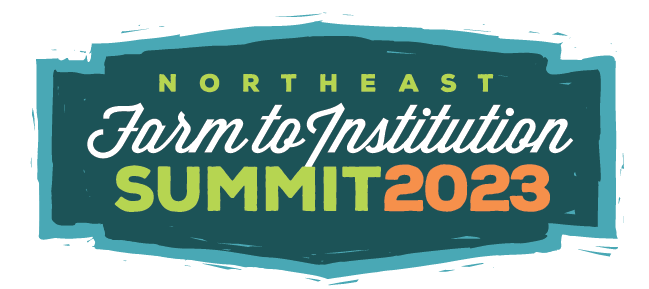Diversity, Equity & Inclusion
FINE is committed to addressing the inequities on which our current food system is built and which we as food systems practitioners perpetuate when we accept the status quo. As such, FINE has created an Diversity Equity and Inclusion plan for the 2023 Summit. The action plan is based on the Decentering Whiteness and Creating Inclusive & Equitable Conferences tip sheet, a document created by a multiracial, multinational working group of racial and social justice educators, organizers, scholars, researchers and activists: Natasha Aruliah, Sonali Sangeeta Balajee, Shakti Butler, Bill Calhoun, Diane Goodman, Sally Leiderman, Emily Morrison and Maggie Potapchuk.
Our action plan is organized into seven principles with several goals embedded in each. Those principles are accountability, inclusion and equity, BIPOC and marginalized groups, learning and engagement, knowledge, cultural and physical needs, and evaluation.
Below you will find a few of the specific goals we have put in place to ensure that this event is safe and welcoming for all. This is a constantly evolving effort. We hope you will support and share your feedback, suggestions, and concerns with us so we can continue to improve. We also know that we will inevitably fall short in some places. There are goals that we aspire to achieve and we will evaluate how well we achieved them as part of our post Summit evaluation.
Accountability: Ensure the conference is responsible and accountable to the local community and larger social justice movements. Goals include:
Avoid Good Friday, Easter, Eid al-Fitr, and Passover when scheduling summit date
Develop a diverse summit steering committee to ensure a variety of stakeholder and community voices center summit programming around the most urgent needs of the network
Use the Summit to build relationships with Tribal members and identify ways to share stories and experiences in our work moving forward
Research and implement appropriate ways to acknowledge the land we are occupying during the Summit
Create an action plan based on the Decentering Whiteness and Creating Inclusive & Equitable Conferences tip sheet
Staff and steering committee members collaboratively develop objectives that address key areas of value for the event: Network, Program, Planning, Finance, Sustainability, Diversity Equity and Inclusion
Inclusion and Equity: Create inclusive and equitable space. Actions include:
Include elders in steering committee/planning
Acknowledge & appreciate elders/veteran stakeholders in the program
Draft community agreements
Communicate with presenters about the importance of embedding aspects of racial equity in every session - in our presenter resources.
Include language in presenter communications gauging interest in activities such as affinity groups, BIPOC only reflection spaces
Highlight multiple cultures through entertainment
Provide a sliding scale cost for registration based on the Anti Oppression Resource and Training Alliance (AORTA)
Provide presenter stipends to those whose time is not being covered by their organization, if their business will lose revenue due to participation, if they are unemployed, formerly incarcerated, and/or identify as a Black, Indigenous, or a person of color for whom reparations are owed
BIPOC and Marginalized Groups: Ensure that the topics and the ways they are framed reflect the leadership, interests, perspectives, and needs of people of color and other marginalized communities. Actions include:
Provide participants with the space to access and share resources around diversity, equity and inclusion
Request for Proposals (RFP) includes criteria that ensure a program that will help break down white dominant culture in our programming and elevate proposals that explicitly address oppression and increase equity in the food system. (see scoring guidelines here)
Collect demographic information in RFP to support diversity of presenters
Be prepared to forego academic-cis-white led session proposals and actively seek out more diverse leadership outside the RFP process if needed.
Include the Racial Equity Challenge in communications and discussion boards
Prioritize food procurement from BIPOC-owned food businesses at the Summit
BIPOC voices are represented through presenters, keynotes, attendees, sponsors, and steering committee members
Learning and Engagement: Provide options for multiple ways of learning and engaging. Actions include:
Offer multiple session formats, such as storytelling, culinary demo, wellness activities, collective problem solving, field trips, poster, artwork, or performances
Offer resources for reflection/meditation
Offer English to Spanish translated recordings of keynote speeches
Offer a venue that accommodates services for lactation rooms, gender neutral bathrooms, and handicap accessibility
Knowledge: Provide options for different areas of interest and depth of knowledge. Actions include:
Continue to collect information about complexity level in session RFP and share in the program
Share a food justice language guide for presenters
Build acknowledgement of the value of both newcomers and veteran food systems folks into the group agreements
Cultural and Physical Needs: Consider how to be responsive to people’s cultural and physical needs and overall well being. Actions include:
Schedule sessions at different times of day to accommodate a variety of schedules
Build in breaks and open time
Evaluation: Develop a variety of evaluation methods--before, during and after the conference--to assess how well the goals for decentering whiteness, and advancing equity and inclusion are being met. Actions include:
Make space for comments, suggestions, and feedback during the conference
Offer survey at the end of the summit plus alternative evaluation methods such as focus groups and 1:1 conversation
Share responses back with attendees
Have an evaluation subcommittee to help develop questions/analyze feedback

